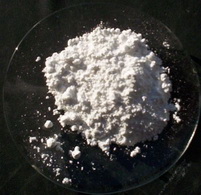
Calcium carbonate
CaCO3, is a White chemical
compound that is the most
common mineral. It occurs in two
crystal forms: calcite and
aragonite. Calcium carbonate is
largely insoluble in water but is
quite soluble in water containing
dissolved carbon dioxide,
combining with it to form the
bicarbonate Ca(HCO 3 ) 2
Hardness of water
Reluctance of water to produce a lather with soap, due to various dissolved salts, mainly those of calcium and magnesium.
Hard water is water that has high mineral content (mainly Calcium and Magnesium ions) (in contrast with soft water). Hard water minerals primarily consist of calcium (Ca2+), and magnesium (Mg2+) metal cations, and sometimes other dissolved compounds such as
bicarbonates and sulfates. Hardness may be temporary (removed from the water by precipitation on surfaces by boiling or heating) or permanent (not affected by boiling or heating). All bicarbonate salts contribute to temporary hardness. All other salts contribute to permanent hardness. Total hardness is the sum of the two.
Salts contributing to permanent hardness:Calcium chloride, Calcium sulphate, Magnesium chloride, Magnesium sulphate.
Salts contributing to temporary hardness: Calcium bicarbonate, Magnesium bicarbonate.In other words: Salts containing CO3
Hardness levels
Very soft: 0-70 ppm, 0-4 dGH
Soft: 70-140 ppm, 4-8 dGH
Slightly hard: 140-210 ppm, 8-12 dGH
Moderately hard: 210-320 ppm, 12-18 dGH
Hard: 320-530 ppm, 18-30 dGH
Very hard >530 ppm, >30 dGH
PPM (Parts Per Million) and defined as CaCO3 per liter.
dGH (degrees General Hardness) same as degrees German (°D) and defined as CaO per liter. 1 gDH = 10 mg/liter as CaO.1 gDH = 17.778 PPM as CaCO3
French degrees (°f)
One degree French is defined as 10 milligrams of calcium carbonate per liter of water, equivalent to 10 PPM.
Conversion French degrees to German degrees.
1 °f= 10 PPM and 1 °D = 17.778 PPM
Therefore 1 °f = 0.56 °D
